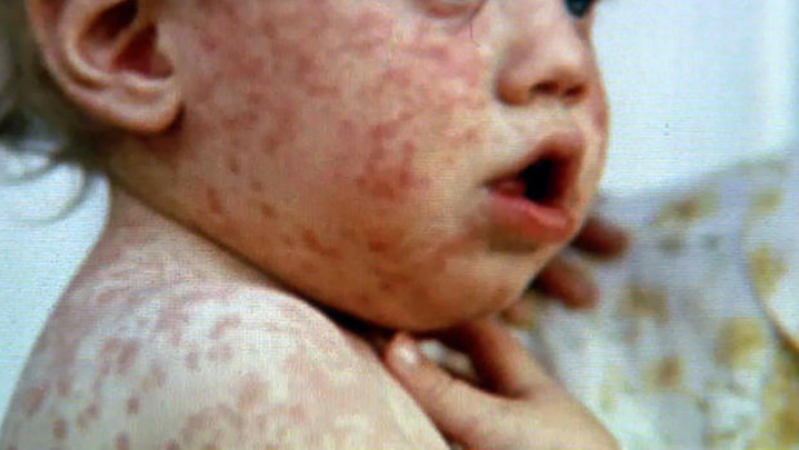
The United States was able to largely scourge the measles virus from its borders at the turn of the 21st century thanks to health policies that emphasized immunization and prevention. However, the rise of international travel, along with certain groups in the U.S. refusing to get immunized out of scientifically discredited reasons, has made measles bounce back in California and other states in the western U.S.
In response to this threat to U.S. public health, the Centers for Disease Control and Prevention have issued guidelines on how to prevent the transmission of the virus in both children and adults. The best option, according to the government agency, is immunization, which has led to a "greater than 99 percent reduction in measles cases" in the U.S.
"CDC recommends all children get two doses of MMR vaccine, starting with the first dose at 12 through 15 months of age, and the second dose at 4 through 6 years of age," the health agency wrote. "Children can receive the second dose earlier as long as it is at least 28 days after the first dose."
As for adults, the CDC recommended that they should get "at least one dose of MMR vaccine" if there is no "evidence of immunity against measles."
The CDC also had a separate section for those who planned to travel outside the United States. While the standards for receiving a measles, mumps and rubella vaccine are similar for both children and adults, infants were also the focus of the guidelines.
"Infants 6 through 11 months of age should receive one dose of MMR vaccine," the CDC wrote. "Infants who get one dose of MMR vaccine before their first birthday should get two more doses (one dose at 12 through 15 months of age and another dose at least 28 days later)."
The government health agency elaborated on how easily the virus spreads in unvaccinated groups of people, which can result in deadly consequences. This is especially true in countries where measles was still a common illness.
"The virus is highly contagious and can spread rapidly in areas where people are not vaccinated," the CDC wrote. "Worldwide, an estimated 20 million people get measles and 122,000 people die from the disease each year-that equals about 330 deaths every day or about 14 deaths every hour."
However, the vaccination is not a guarantee that one will be infected with measles; it just prevents the more severe symptoms from playing out. According to Rong-Gong Lin II and Rosanna Xia of the Los Angeles Times, measles can be highly contagious even among those who received the vaccine.
"There's a 5 percent chance of vaccine failure in people who have had only one dose of measles vaccine, and a less than 1 percent chance in people with both doses," Lin and Xia wrote, citing experts.
The Los Angeles Times cited a 2011 outbreak in New York City where a "fully vaccinated" 22-year-old woman became infected with measles and managed to spread it to four other people with immunity. Researchers noted that it was the first documented case where a fully immunized person could transmit measles to other people who had the vaccine.
Despite the rare possibility of failure, Dr. James Cherry, a UCLA research professor and primary editor of the Textbook of Pediatric Infectious Diseases, argued that having both doses of MMR vaccines is better protection than none at all. He contended to the Los Angeles Times that getting a third dose was quite safe.
"I would say anybody who doesn't know they've had two doses should get a dose of vaccine," Cherry said.
California epidemiologist Dr. Gil Chavez reinforced that notion to the Los Angeles Times. He argued that various medical studies have discredited the unscientific claim that vaccines cause autism, a fear many parents in that state express when they try to opt out of immunizing their children.
"Vaccination is safe and effective," Chavez said. "With this outbreak in this state, we can expect to see many more cases of this vaccine-preventable disease unless people take precautionary measures. We have a particular responsibility to protect all of our infants in the state until they are old enough to [be] vaccinated."
However, infants under 6 months old are ineligible for the MMR vaccine based on government guidelines. In that case, Chavez recommended that parents don't take their young infants to Disneyland or other theme parks where measles could easily spread.
"I would recommend that infants are not taken to places like Disneyland today," Chavez said.
The Los Angeles Times reported that previous outbreaks have been quelled only through higher immunization rates.
"There's the tug here between a very effective vaccine and a very infectious virus," Orange County Public Health Officer Dr. Eric Handler said. "When you have a scenario where hundreds of people get exposed, then even if the vaccine is 99 percent good after two doses, you're going to have a handful of people who are going to get sick."






